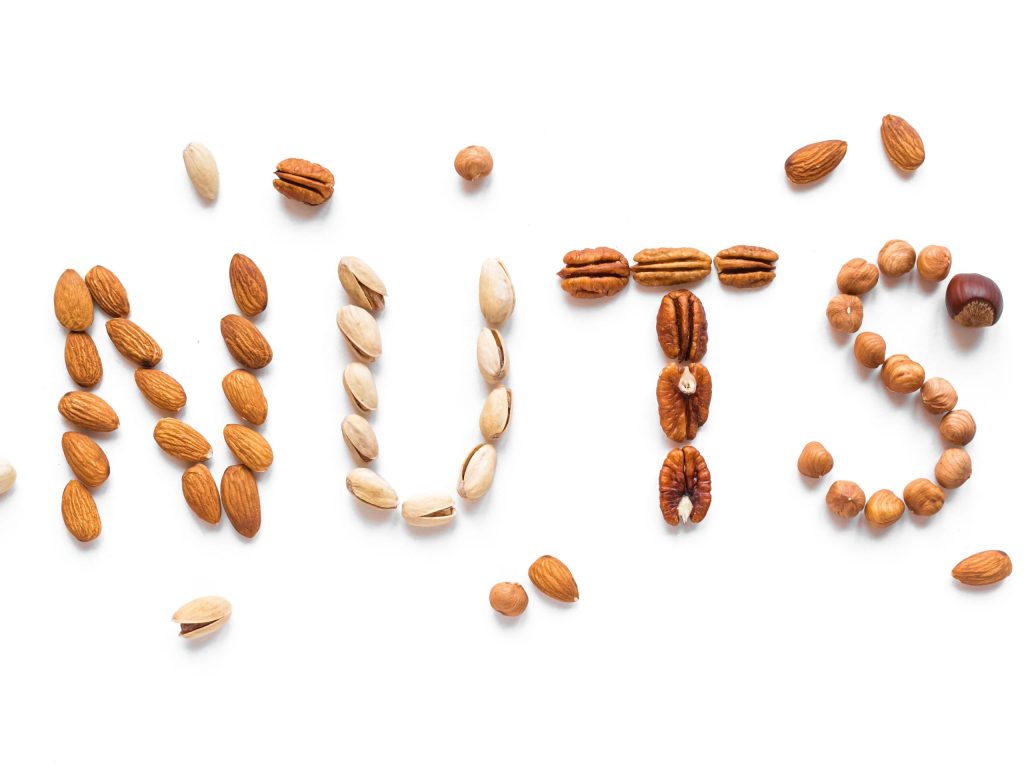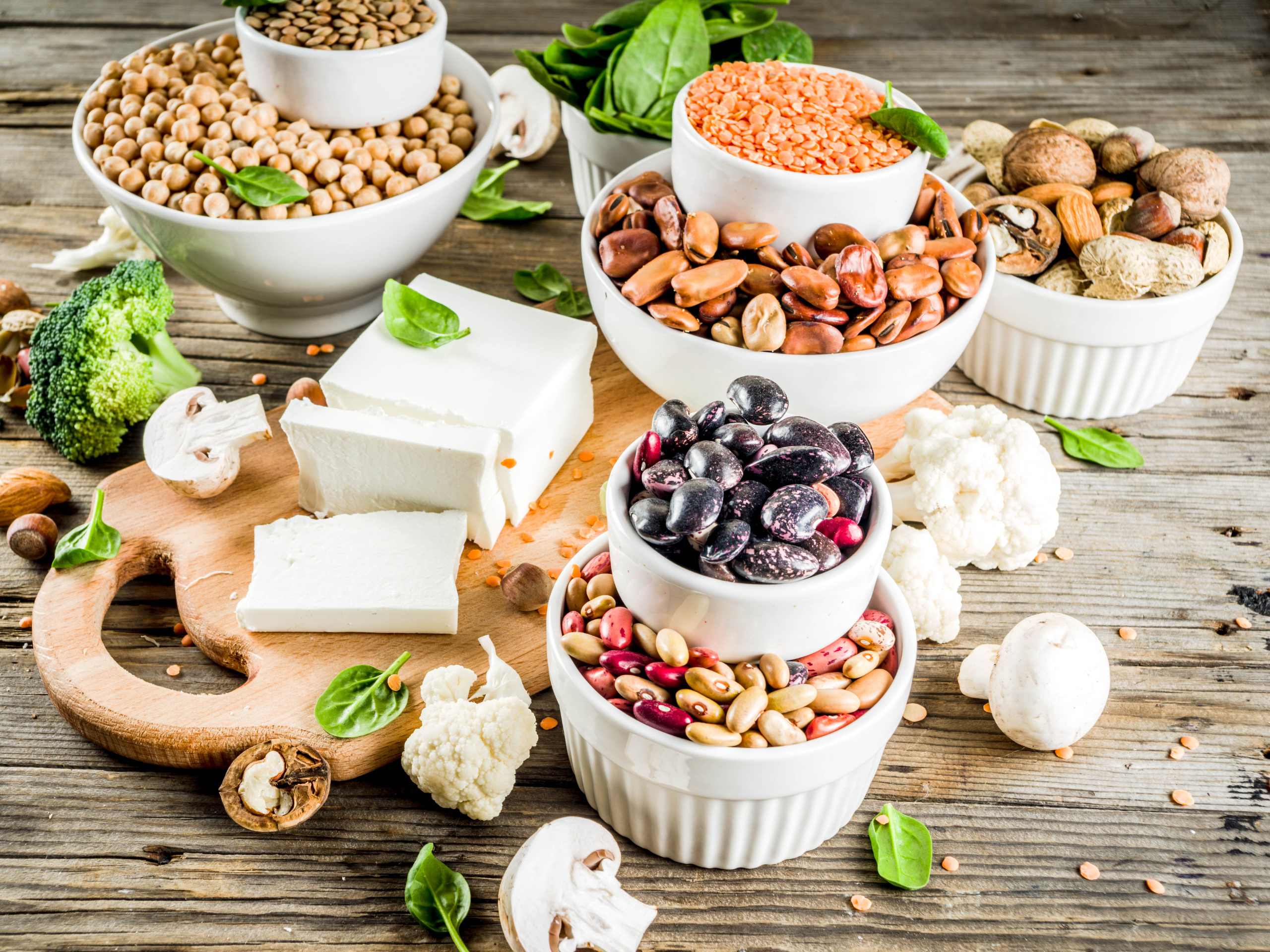Protein needs are also a hot topic for anyone seeking to lose weight, build muscle or maintain their current healthy weight. Protein sources are especially talked about when following a plant-based diet due to a lack of knowledge on how to get enough protein without consuming animal products. Good news for my Vegan Babes – it’s possible to get enough protein-eating plants, but there are some things to take into consideration, which I am sharing below.
Plant versus animal protein
Protein is made up of amino acids. There are 20 amino acids that your body can use to build protein. Out of these 20 amino acids, 9 are considered essential, which means that your body cannot produce them itself, so you need to get them from your diet. The remaining 11 are considered non-essential, as your body can produce them from the 9 essential amino acids. Animal protein contains all nine essential amino acids in sufficient amounts. Plants also contain all nine essential amino acids — however, besides a few exceptions, most typically offer a limited amount of at least one essential amino acid. For example, beans, lentils, and many vegetables tend to contain low amounts of cysteine and methionine. On the other hand, grains, nuts, and seeds tend to be low in lysine. Because of this, many people refer to plant foods as “incomplete” sources of protein. HOWEVER, as long as you eat a variety of plant-based proteins, this shouldn’t be a problem. You can still get enough of all the essential amino acids your body needs for your goals!
Protein sources when following a plant-based diet
Protein needs vary by individual based on your weight and daily physical activity. Here’s the (not-so-) secret formula. Proteins are vital for muscle growth and help keep you full throughout the day. So don’t skimp on protein consumption! Lean protein sources are key to losing fat while building muscle!
Learn to love lentils: Lentils are healthy legumes packed with plant-based protein. Lentils are definitely a staple in my diet, since they’re filling, cheap, and extremely nutritious. On average, 1 cup cooked serve up a great amount of protein: Lentils offer 18 grams and remember there are different lentil colors (red, yellow, black, brown, green) that provide different tastes! Lentils are also a great source of fiber, providing over half of your recommended daily fiber intake in a single cup! In addition, lentils are rich in folic acid, manganese, and iron. They also contain a hearty dose of antioxidants and other health-promoting plant compounds.
Don’t be afraid of Soy. Soy gets a bad rap, but it’s one of the best plant-based sources of protein. Think tofu, tempeh, and edamame. These products contain all nine EAAs; It’s also versatile, affordable, and easy to find. All three soy-based proteins contain iron, calcium, and 12–20 grams of protein per 3.5-ounce serving. Edamame is also rich in folate, vitamin K, and fiber, which can help support digestion.
Learn to add beans strategically: Think of beans as a carbohydrate with a bonus of some protein! They’re also excellent sources of complex carbs, fiber, iron, folate, phosphorus, potassium, manganese, and several beneficial plant compounds. On average, 1 cup cooked serve up a good amount of protein: Chickpeas: 15g, Black, kidney, pinto, & lima beans: 15g
Add in Seitan: It’s made from gluten, the main protein in wheat. It closely resembles the look and texture of meat when cooked. Also known as wheat meat or wheat gluten, it contains about 25 grams of protein per 3.5 ounces, making it a rich plant protein source. Seitan is also a good source of selenium and contains small amounts of iron, and calcium. However, because it contains wheat, people with gluten-related disorders should avoid eating seitan.
Eat Ezekiel bread and other breads made from sprouted grains. Made from organic, sprouted whole grains and legumes. These include wheat, millet, barley, and spelt, as well as soybeans and lentils. Two slices of Ezekiel bread contain approximately 8 grams of protein, which is slightly more than most other types of breads. Sprouting also seems to boost the content of soluble fiber, folate, vitamins C and E, and beta carotene.
Remember Nuts, nut butters and seeds. Think of these as a fat source that also offers a bonus of protein! These little goodies are often overlooked. Pistachios are the nut highest in protein and seeds like chia and hemp can significantly contribute to protein needs when consumed regularly as part of a balanced diet. A serving of 4 Tbsp will get you a decent amount of protein in these: Chia seeds: 12g, Hemp seeds: 10g, Peanuts: 9g, Flax & sunflower seeds: 8g, Sesame & pumpkin seeds: 7g, Almonds & pistachios: 7g, Walnuts & cashews: 5g

Never forget the veggies: Most people know that vegetables have a lot of vitamins and fiber. But many veggies also contain some protein to help build muscle. Whether you roast, steam, boil, blend, or eat them plain, vegetables are a protein category that should not be overlooked. A serving of just 1 cup can provide a hearty amount of protein: Potato (with skin): 4g, Oyster mushrooms: 5g, Broccoli: 6g, Spinach, cooked: 5.35g
Faux Meat substitutes offer alot of variety. Lots of great plant-based alternatives to meat are available these days using tofu, seitan and pea protein. These products have the protein power of soybeans, wheat gluten, or peas in very protein-dense veggie sausages, patties, deli slices, strips, and roasts. I substitute them for meat in recipes all the time. The amount of protein varies by product.
The simple takeaway: Incorporating a protein-rich ingredient in each meal or snack is a great way to boost your protein intake. Try topping salads with tofu or pairing fruit with nut butter to squeeze some extra protein into your diet. It’s easy to get protein from plants which will put you on the right track for healthy weight loss!
Get started today losing fat and building muscle by setting up a Free Consultation Call with me, a Vegan Registered Dietitian.

